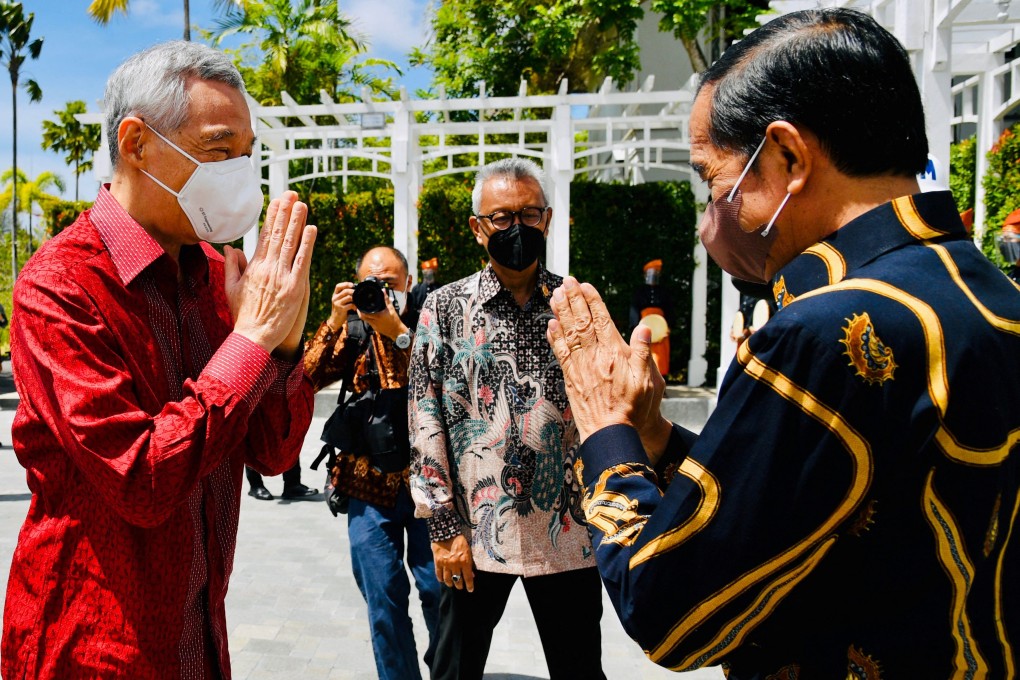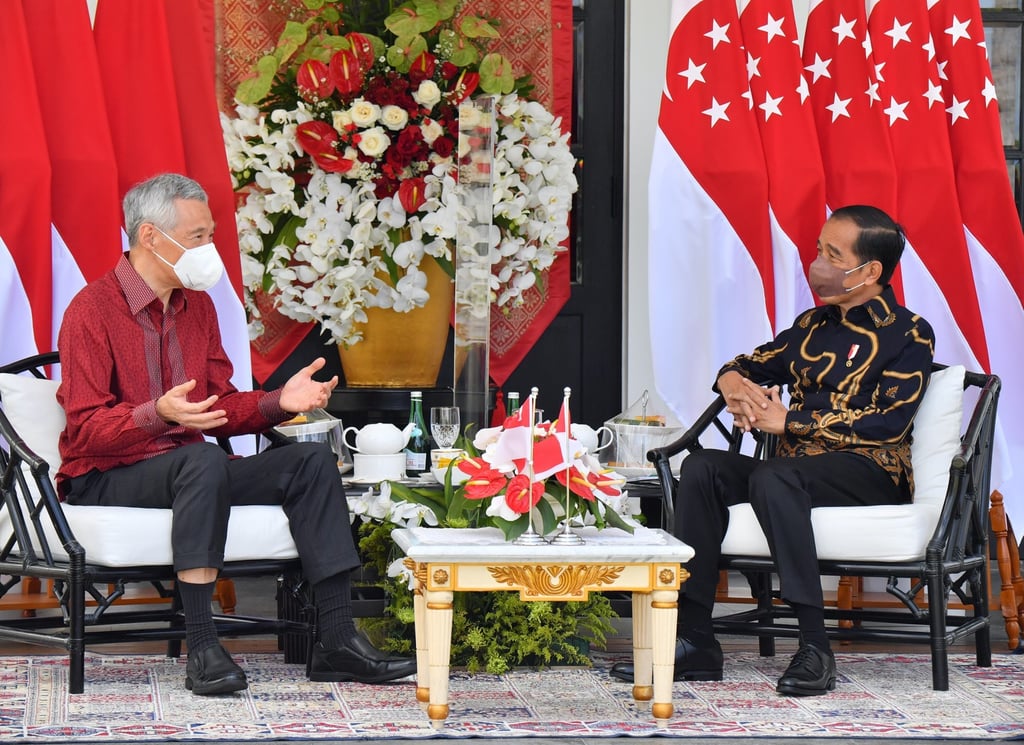Advertisement
As I see it | Indonesia-Singapore deals a milestone for Asean neighbours navigating minefields
- Landmark agreements on airspace, extradition and defence are not only a sign of a new age in bilateral relations, but a show of unity in contentious times
- With the Southeast Asian bloc entangled in problems from the South China Sea to Myanmar, the deals offer hope that diplomacy and negotiation can still yield outcomes
Reading Time:3 minutes
Why you can trust SCMP

Indonesia and Singapore’s landmark agreements this week on airspace boundaries, extradition and defence cooperation have been lauded as a mark of mature and strong bilateral relations. The deals, signed by heavyweight ministers from both sides and witnessed by both countries’ leaders, bring to a close years of sometimes heated public wrangling.
Advertisement
Indonesian politicians have from time to time accused Singapore of dragging its feet on an extradition treaty, alleging that it is enjoying the benefits of harbouring Indonesian fugitives and their ill-gotten gains. Each time, officials have issued deep-throated rebuttals to point out that Singapore has cooperated with Indonesian authorities in graft or fraud investigations and that it is ready to implement the extradition treaty together with a defence agreement, as originally agreed.
Singapore commentators have since heralded the agreements – which still need to be ratified by the Indonesian parliament – as a new age for relations between the city state of 5.45 million and Southeast Asia’s largest economy, which is home to 270 million. For Indonesia, which is chairing the G20 this year, the agreement has boosted the foreign policy legacy of President Joko Widodo, once criticised for being too focused on domestic issues.

The agreement to redraw airspace boundaries in particular has been hailed domestically as Jakarta reclaiming its sovereignty – the headline of an Indonesian language news story on the Bisnis Indonesia website read “It’s legit! Natuna Air Space falls into Indonesian hands after 76 years of control by Singapore”. This even though sovereignty has never been disputed by Singapore; its control of the airspace above Indonesia’s Riau Islands in the Natuna Sea was the result of an International Civil Aviation Organisation decision in 1946. Revenue collected by Singapore in its provision of air navigation services over Indonesian airspace has always been handed over to Jakarta.
Still, the consensus reached by both sides is symbolic, beyond being significant for the countries involved. It shows that diplomacy and strategic negotiation can still yield outcomes in an increasingly contentious geopolitical environment. It is a necessary show of unity as Asean (the Association of Southeast Asian Nations) navigates political minefields in the region with an eye to maintaining its centrality, and preventing outside interference from larger powers.
Four of Asean’s 10 members are currently tangled up in an ongoing South China Sea dispute with Beijing. Reports say that Indonesia is seeking to engage in a “minilateral” with claimant states Brunei, the Philippines, Malaysia and Vietnam (with Singapore also invited) to discuss a response to Beijing’s growing assertiveness.
Advertisement

Advertisement
